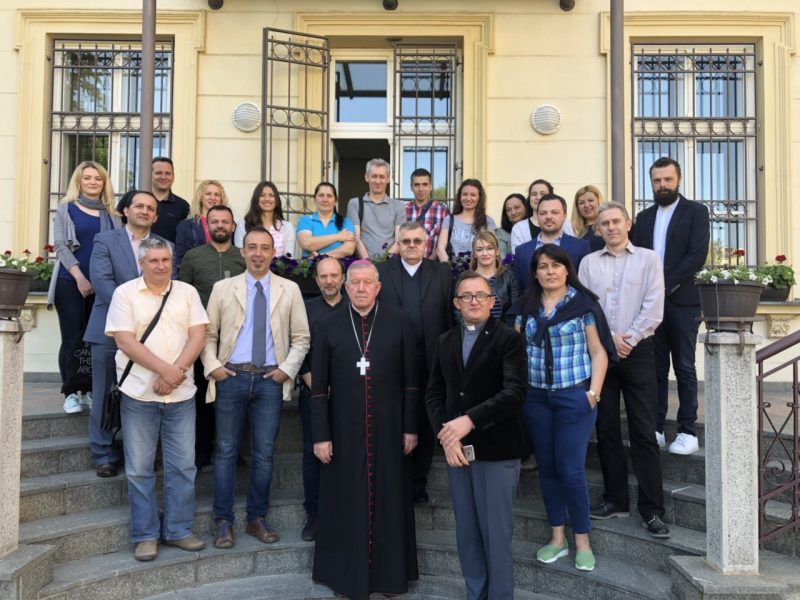The commonwealth and the responsibility of all national Caritas organization through project SOCIETIES contributes to quality project implementation.
On 27th of April 2018 Caritas Serbia organized a project management meeting of the SOCIETIES project – Support Of CSOs In Empowering Technical skills, Inclusion of people with disabilities and EU standards in South East Europe.
In addition to the project team meeting was attended by directors of Caritas organizations involved in the implementation of the project, Rev. Ivica Damjanović, director of Caritas Serbia, Msgr. Tomo Knežević, director of Caritas of Bosnia and Herzegovina, Don Antonio Leuci, director of Caritas Albania, Mr. Alfred Pjeri, executive director of Caritas Kosovo and Mr. Marko Đelović, Director of Caritas Montenegro.
The meeting was organized with the aim of presenting the new project management, assessing the basic project achievements, as well as the roles and responsibilities that each Caritas organization has in the implementation of the project.
The meeting was organized in the premises of the Archdiocese of Belgrade, and during the meeting participants were addressed by the President of the Caritas Serbia, Msgr. Stanislav Hočevar, the Archbishop and Metropolitan of Belgrade. He welcomed all participants of the meeting, emphasizing the need and importance of Caritas’ cooperation throughout the region.
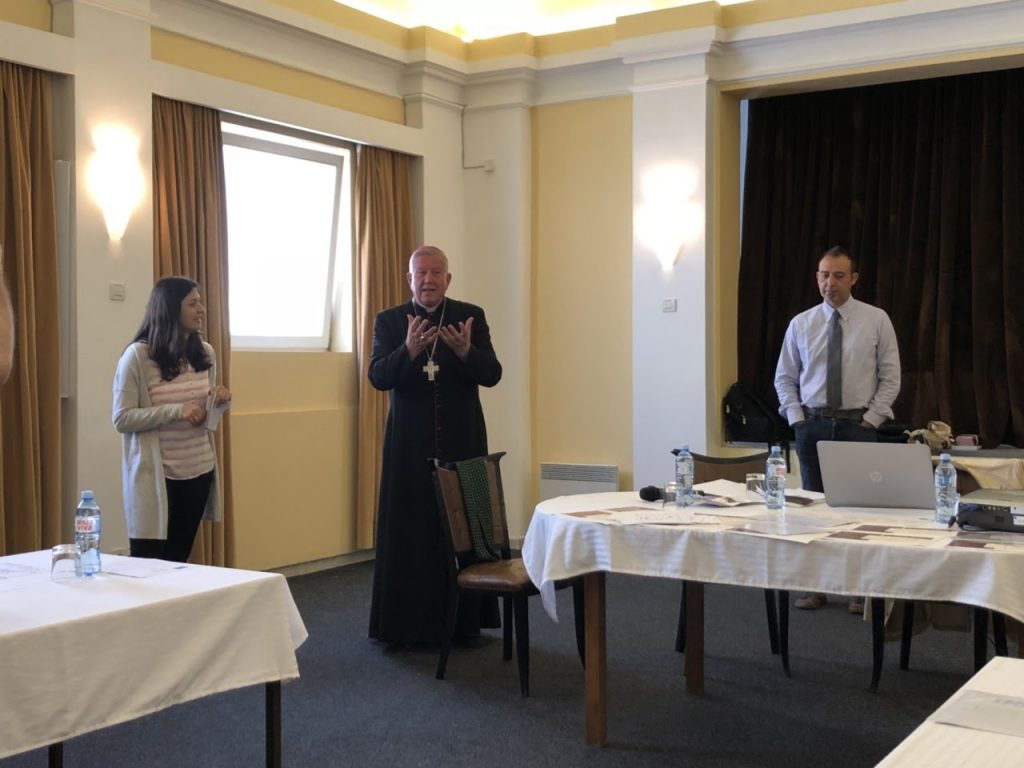
At the very beginning of the session participants were addressed by the Director of Caritas Serbia, Rev. Ivica Damjanović emphasizing that the project SOCIETIES is a significant project and a chance for joint action. Rev. Damjanović stated, that the meeting is an opportunity for all the national Caritas directors in the region to get acquainted with the project as well as to look for new ways to overcome all the difficulties in the implementation.
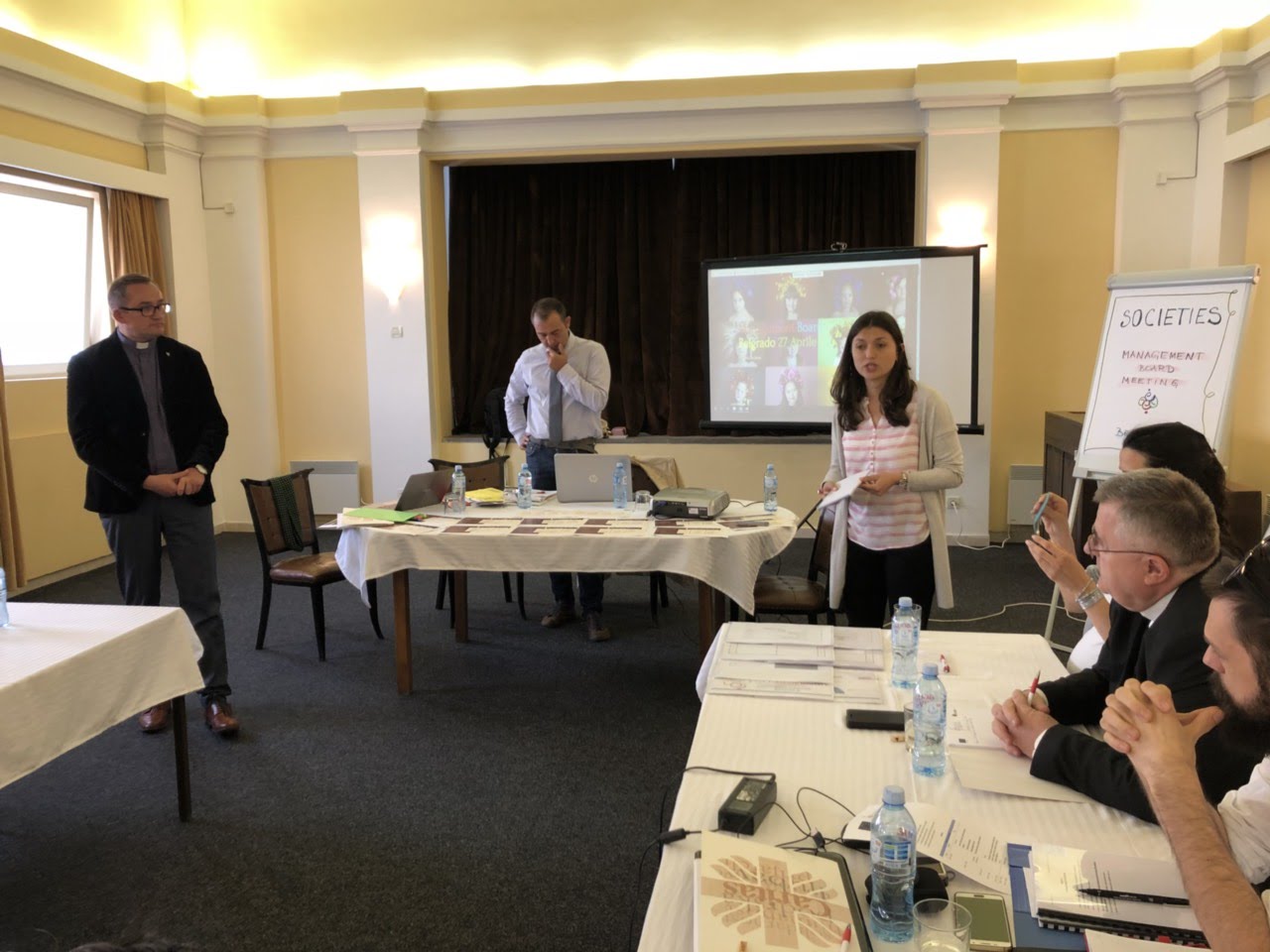
Mr. Ettore Fusaro, representative of Caritas Italiana and an expert in the SOCIETIES project moderated the meeting. In his introductory address, Mr. Fusaro presented a full-day program of meeting, briefing the participants on all the details of the project, as well as on the current situation of project implementation and introduced the importance of social inclusion of persons in need, primarily persons with disabilities and persons with mental health issues. He emphasized that it’s time to take advantage of the benefits of European Union support to Southeast Europe with the opportunities that will soon become available to Caritas organizations in the region.
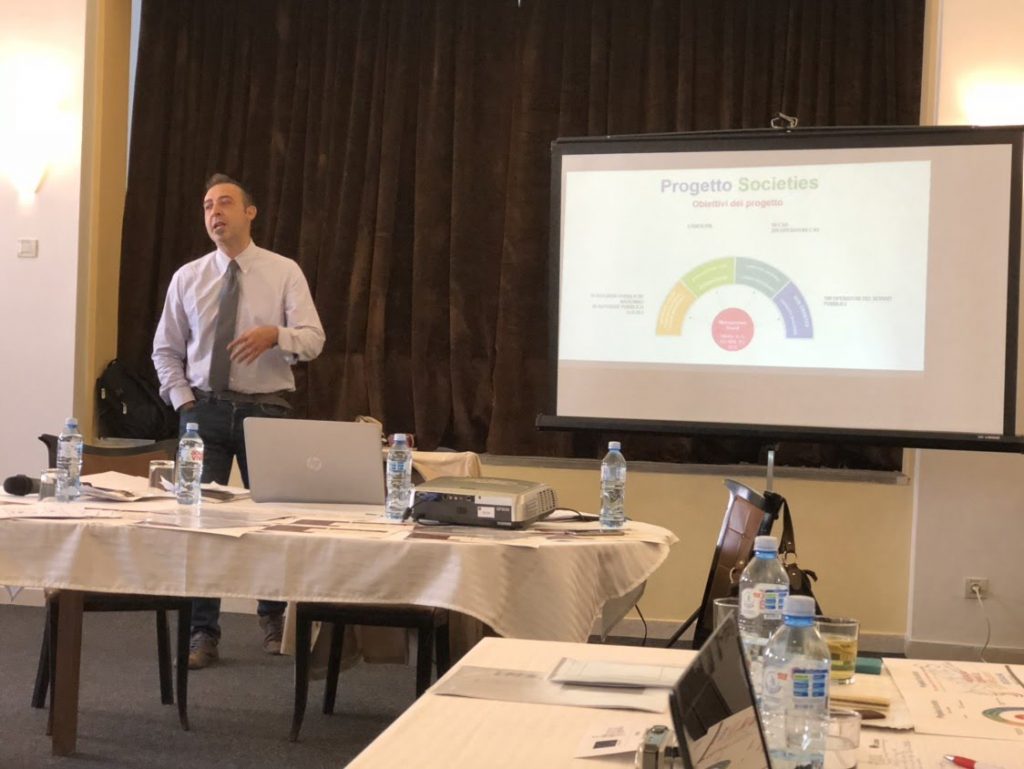
In the second part of the meeting, local coordinators in charge of field activities discussed the identified problems in the implementation phase, and sought solutions and defined the strategy and necessary instruments to overcome these problems. During the meeting, local coordinators, with the support of the directors, sought to find ways and opportunities to multiply the realized results and ensure further capacity building not only of Caritas organizations, but also of all partner organizations and user associations.
At the end of the meeting, a detailed action plan for 2018 was made, including the continuation of the implementation of training programs, study visits, the organization of public awareness campaigns, and the concretization of activities to establish a dialogue between civil society organizations and public institutions.
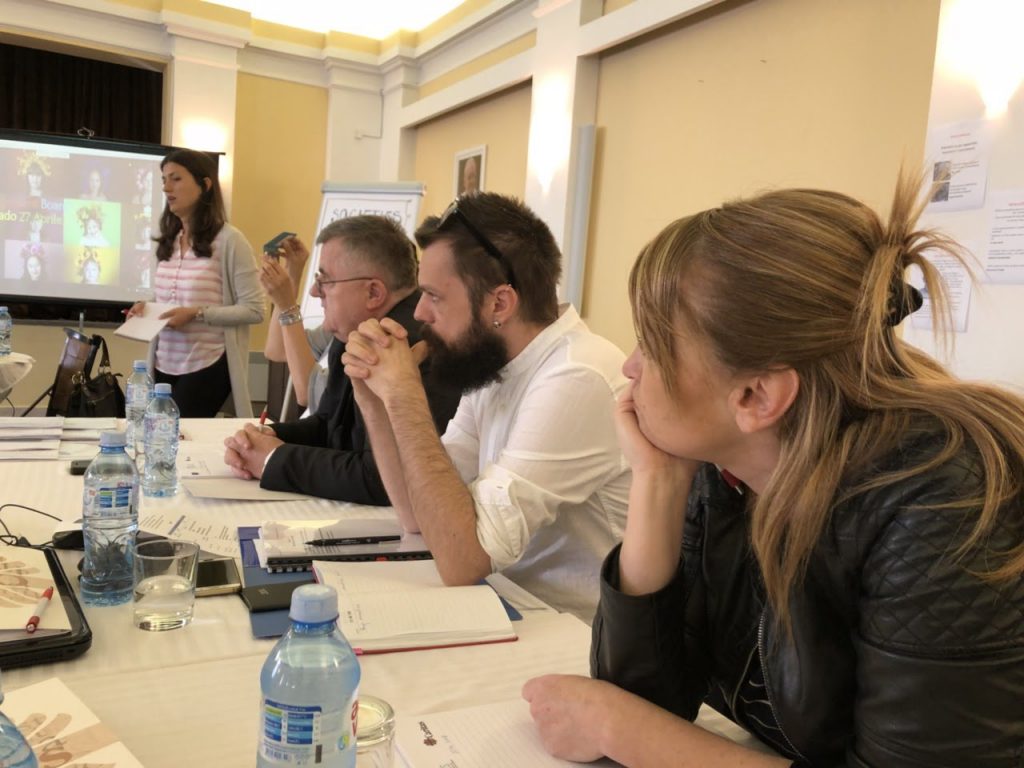
Project SOCIETIES aims to assist civil society organizations in upgrading technical skills, or to contribute to the social inclusion of people with disabilities through the implementation of EU standards in South East Europe. The project is being implemented in five countries of Southeast Europe, with the support of experts from Italy and Bulgaria. The implementation of the project involves 16 partner organizations.The projected duration is 48 months, until the end of 2019. The project is funded by the EU funds under the program of support for regional and thematic networks of civil society organizations.

